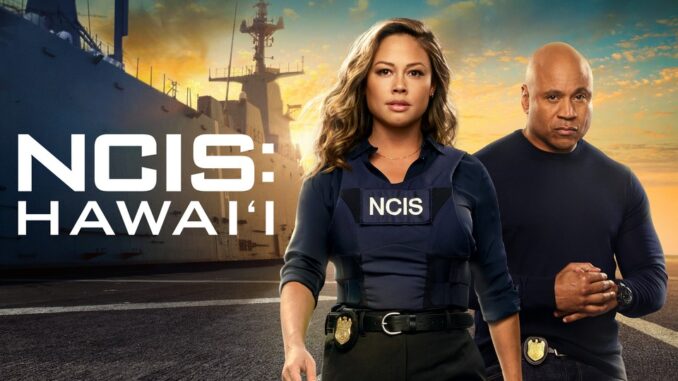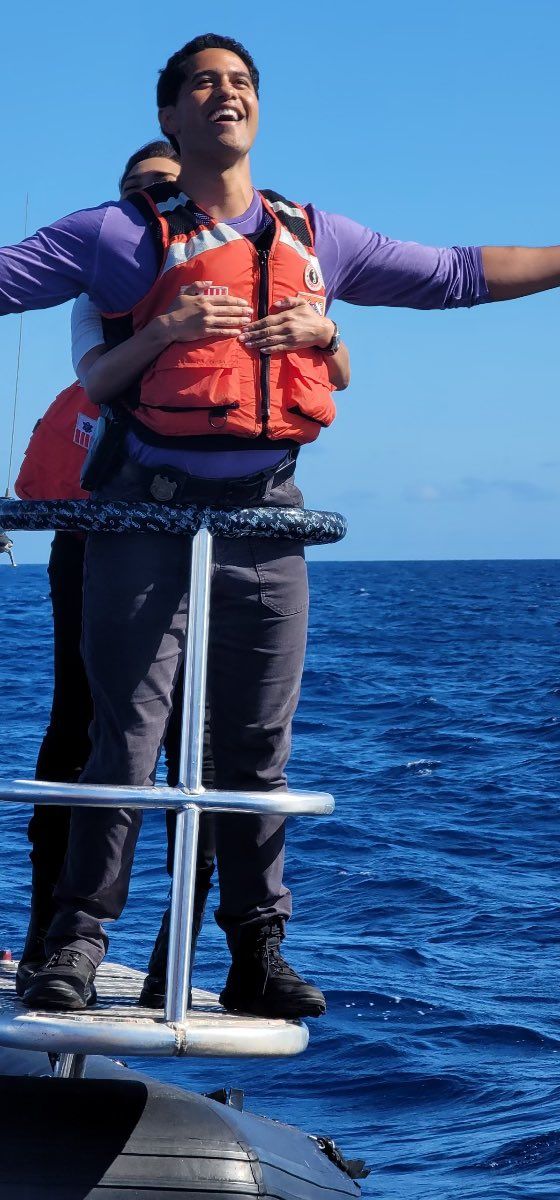
NCIS: Hawai’i was great for LGBTQ+ representation on primetime television, and now that it’s off the air, the absence of the spinoff will be a loss for the entire medium (not just the NCIS franchise). The spinoff featured a lesbian relationship between characters FBI Special Agent Kate Whistler (Tori Anderson) and NCIS Junior Agent Lucy Tara (Yasmine Al-Bustami), and the relationship wasn’t just an afterthought for the franchise. The two women have been in a healthy, loving relationship since the series started, with the relationship prominently featured in the pilot episode.
The partnership was filled with moments that were tender and honest, adding depth to the LGBTQ+ experience typically seen in the media. Unlike many representations of lesbian couples in the media, the relationship between Kate and Lucy (referred to as “Kacy”) was portrayed as genuine and non-sexualized. It was positively received within the LBGTQ+ community and accepted as an accurate representation of a lesbian relationship. The partnership was filled with moments that were tender and honest, adding depth to the LGBTQ+ experience typically seen in the media. It was a message that a relationship between two female federal agents warranted the same screentime as any other NCIS relationship before it.
When you think of NCIS, you likely picture high-stakes investigations, military intrigue, and stoic agents. But NCIS: Hawai’i dared to add something more—something essential. It brought heart. It brought authenticity. And most importantly, it brought LGBTQ+ representation that was honest, respectful, and trailblazing.
Unlike many shows that dip a toe into diversity to tick boxes, NCIS: Hawai’i dove in with commitment. It didn’t just introduce LGBTQ+ characters—it gave them depth, careers, romance, conflict, and joy. That’s the kind of screen time the LGBTQ+ community deserves, and here’s why this show got it right.
Why LGBTQ+ Representation Matters More Than Ever
Media Shapes Culture—And Identity
Let’s be real. For decades, TV has told us who’s “normal” and who isn’t. So when queer characters are included, respected, and celebrated on mainstream shows like NCIS: Hawai’i, it reshapes societal norms. Young people see themselves. Adults feel validated. The ripple effects are massive.
Representation Isn’t Just About Visibility—It’s About Dignity
It’s not just about having LGBTQ+ characters; it’s about how they’re portrayed. Are they stereotypes? Comic relief? Or are they complex, powerful, real people?
NCIS: Hawai’i gave us the latter.
The Leading Lady Who Changed Everything
Jane Tennant: A New Kind of Boss
Sure, Jane Tennant (played by Vanessa Lachey) isn’t LGBTQ+ herself. But as the first female Special Agent-in-Charge in the franchise, she set the tone for inclusion and diversity. And the team she built reflected that progressive spirit.
Kate Whistler & Lucy Tara: A Love Story Worth Telling
Now here’s where NCIS: Hawai’i truly made history.
-
Kate Whistler, played by Tori Anderson, is an ambitious Defense Intelligence Agency agent.
-
Lucy Tara, portrayed by Yasmine Al-Bustami, is a smart and fearless NCIS agent.
Their on-again, off-again romance wasn’t sidelined—it was front and center. And unlike most LGBTQ+ couples who get crumbs, “Kacy” (their ship name) got the screen time, the angst, the kisses, and the happy moments.
Kacy’s Relationship Broke the Mold
Not Just “Token Gay” Moments
From awkward first dates to emotional confrontations, Kate and Lucy’s story had all the beats of a classic TV romance. But this time, it was between two women of color, holding powerful jobs, and dealing with their baggage just like anyone else.
LGBTQ+ Love Without the Trauma Trope
How many times have we seen queer characters killed off or used to teach “a lesson”? Too many. NCIS: Hawai’i avoided that trap. Instead, it gave us something rare—a healthy, evolving relationship.
Hawaii: A Setting That Matters
A Culturally Rich Backdrop
Filmed and set in Hawai’i, the show tapped into the islands’ history of inclusion and diverse identities. It wasn’t just a pretty backdrop. It was a reflection of the characters’ layered lives and their place in a broader, multicultural community.
Authentic Casting Made a Difference
From casting native Hawaiian actors to showing respect for local culture, NCIS: Hawai’i went above and beyond. That commitment extended to how it portrayed LGBTQ+ characters as people first—not just defined by their sexuality.
Why This Representation Was So Effective
Smart Writing With Real Emotion
No lazy writing. No caricatures. Just characters with real fears, dreams, and motivations. That’s what makes the difference between a throwaway queer character and one that resonates.
Dialogue That Felt Real
Lucy and Kate didn’t speak in cliches. Their conversations felt raw, witty, awkward, and sometimes messy—just like real relationships.
Breaking the Network TV Mold
CBS Isn’t Known for Queer Representation—Until Now
Let’s face it—CBS has typically played it safe. But with NCIS: Hawai’i, the network showed it could embrace modern storytelling. It opened the door to deeper inclusivity in a space previously dominated by cishet male characters.
A Beacon for Future TV Shows
A Blueprint for Inclusive Storytelling
What NCIS: Hawai’i did wasn’t radical—it was right. And now, it serves as a blueprint for other writers and networks looking to get LGBTQ+ storytelling right.
Fans Showed Up—and Spoke Loudly
Viral Hashtags and Online Fandom
From #Kacy to #NCISHawaii, the show built a loyal online fandom. LGBTQ+ fans finally felt seen—and they weren’t quiet about it.
Fan Letters, Tweets, and Petitions
When the show was canceled, fans rallied with online campaigns, petitions, and heartfelt messages. Why? Because it wasn’t just a show. It was a lifeline for many.
The Cancellation That Hurt More Than Expected
A Premature Goodbye
When CBS pulled the plug after Season 3, fans were devastated. It felt like saying goodbye to friends who had finally invited them to the table.
But the Legacy Lives On
Even though it ended, the impact of NCIS: Hawai’i is still felt. It proved that diverse, inclusive storytelling can live in mainstream TV—and succeed.
Real-World Impact: Visibility That Saves Lives
Positive Role Models for LGBTQ+ Youth
Teens struggling with identity saw confident, happy queer adults on screen. That matters. That saves lives.
Normalizing Queer Love
The more we see it, the more it becomes accepted. NCIS: Hawai’i helped move the needle just a little further—and that’s no small thing.
The Global Effect of Inclusive Storytelling
Broadcast Around the World
This wasn’t just an American show. It aired internationally, bringing LGBTQ+ love stories into homes where queer people are often silenced or erased.
Representation Without Borders
Seeing a queer couple like Kate and Lucy on prime-time television crosses cultural lines and speaks a universal language—love, respect, and equality.

Conclusion: Why NCIS: Hawai’i Will Always Matter
In a TV landscape often driven by ratings and formulas, NCIS: Hawai’i dared to be human. It showed us a world where women lead, where love doesn’t follow strict rules, and where LGBTQ+ characters are more than just a side plot—they’re the heart of the story.
It wasn’t perfect. But it was powerful.
And even if the final credits rolled too soon, the show’s impact continues in every fan it touched, every life it inspired, and every screenwriter who now knows it can be done.